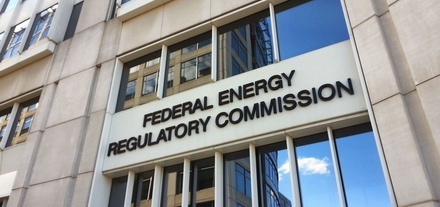
AEE has seen efforts to roll back energy efficiency requirements before, from the ongoing struggle to maintain Ohio’s successful efficiency standards in the face of legislative attacks and attempts to let big companies opt out of energy efficiency programs in Pennsylvania to the Trump Administration’s suspension of EE rules for central air conditioning. But this year, we saw something new: an attack on energy efficiency in the wholesale markets. As with other challenges to this money-saving advanced energy technology, AEE has taken it on.
When we think of energy efficiency, most of us think of utility-based programs that promote energy-saving light bulbs, appliances, and insulation, maybe even behavioral inducements for customers to use less electricity. However, there are also companies that participate in the wholesale market and do not interact at all with retail customers. One example of this type of offering is as follows: A company makes arrangements to facilitate the sale of energy efficiency products to consumers. The company then acquires the beneficial attributes (i.e. the expected electricity reductions from the use of the light bulbs). These attributes are packaged and offered as a resource in a wholesale market, such as the capacity market managed by PJM Interconnection.
Earlier this year, PJM proposed a change that would allow state utility commissions to restrict or bar the participation of energy efficiency resources in the PJM capacity market. The proposal stems from the East Kentucky Power Cooperative’s application to the Kentucky Public Service Commission (PSC), which proposes to restrict energy efficiency resources from the wholesale market. This move came as part of an effort by Kentucky utilities to reduce their spending on demand-side management programs in the face of declining electricity sales. The rule change at PJM would allow the Kentucky PSC to prevent energy efficiency resources from competing in the capacity market, where they are delivering energy savings and displacing the need for more expensive power plant capacity.
On June 2, AEE filed a petition of declaratory order with the Federal Energy Regulatory Commission (FERC), pointing out that while state commissions have exclusive authority on retail energy decisions, the Federal Power Act gives sole jurisdiction in the wholesale markets to FERC and the associated regional transmission organizations (RTOs). Allowing states and their regulators of the retail market to bar energy efficiency resources from the wholesale market would result in unjust and unreasonable rates – a direct violation of the Federal Power Act. On that basis, AEE called on FERC to clarify that it has sole jurisdiction on this matter, and declare that it has not granted authority to restrict the participation of energy efficiency resources in wholesale markets. In addition, AEE asked FERC to declare that energy efficiency resources which have already cleared PJM’s capacity market “not be irreparably harmed” by any such exclusion, and to provide guidance on the handling of any similar request to restrict or condition participation in FERC-regulated markets.
Since PJM covers parts or all of Delaware, Illinois, Indiana, Kentucky, Maryland, Michigan, New Jersey, North Carolina, Ohio, Pennsylvania, Tennessee, Virginia, West Virginia, and the District of Columbia, this rule would have wide-reaching implications. Moreover, this type of proposal would set a dangerous precedent for creating other types of wholesale market barriers for advanced energy technologies.
The docket is still open on this case, and we continue to wait for a ruling from FERC. So stay tuned.
